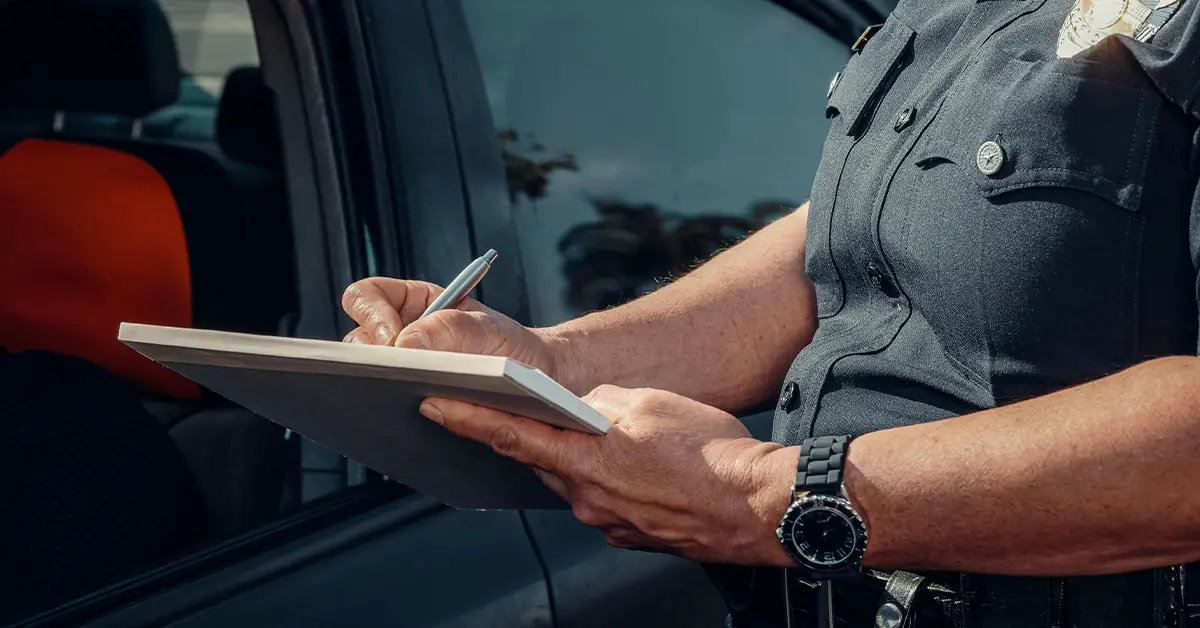Yes, it is possible for the police to send you tickets through the mail. Depending on the jurisdiction and the specific type of violation, law enforcement agencies may choose to issue tickets by mail instead of issuing them in person. This practice is commonly used for traffic violations, parking tickets, and other minor infractions.
Definition of traffic violations
Traffic violations in the English language refer to any infringement of road traffic laws. These violations are common and can result in penalties, fines, and court appearances. Traffic violations typically include driving under the influence (DUI), speeding, running red lights, tailgating, and not wearing a seatbelt. These violations can lead to a range of consequences, from points being added to a driver’s license, to hefty fines and even jail time.
In some cases, traffic violations can also result in the revocation or suspension of a driver’s license. When caught violating traffic laws, drivers can receive tickets from police officers or receive them in the mail, depending on how they were detected. Some drivers contest their tickets in court, while others choose to pay the fines and move on. All drivers should be aware of the traffic laws in their state or city and make an effort to follow them, in order to prevent unnecessary accidents, financial costs, and legal trouble.
Traffic Violations and Tickets: What You Need to Know

Breaking traffic laws can lead to receiving a ticket, which may come in different forms depending on the circumstances and technology available. Here are some common types of traffic violations that police may issue tickets for:
- Running a red light: A traffic camera at an intersection can capture a photo of a vehicle passing through a red light, and the court may mail a citation to the owner of the vehicle if the violation is deemed legitimate. However, the image may not always provide clear evidence of who was driving the car at the time of the violation, and errors can occur due to the equipment or weather conditions.
- Speeding: Police officers can use different methods to determine if a vehicle is exceeding the posted speed limit, such as radar guns or pacing techniques. If an officer observes a driver speeding, they can pull them over and issue a citation. If an officer is using a speed trap, they may record the license plate number of a suspected vehicle and send a citation to the registered owner, who may then have to prove that they were not driving or dispute the validity of the citation.
- Reckless driving: This violation may involve various actions that endanger other people or property, such as weaving in and out of lanes, tailgating, or driving under the influence of alcohol or drugs. If a police officer witnesses such behavior, they may pull the driver over and issue a ticket, which may result in harsher penalties than a basic traffic violation.
- Failing to stop or yield: This violation may occur at stop signs, crosswalks, or when merging onto a highway, and can cause accidents or pedestrian injuries. If a police officer observes a driver disobeying a traffic signal or sign, they may pull them over and issue a citation, which may require the driver to attend a court hearing to resolve the matter.
- Using a handheld device while driving: Pennsylvania law prohibits drivers from using a cell phone or other device to read, write, or send text messages, emails, or internet data while driving. If a police officer sees a driver engaging in such activity, they may issue a citation, which can result in fines and points on the driver’s record.
Regardless of the specific violation, receiving a ticket can have consequences for a driver’s finances, driving privileges, and record. If a citation is mailed to the driver, they may have up to 30 days to respond or dispute the charges. If they fail to do so, they may face additional penalties, such as fines, license suspensions, or even arrest warrants. To avoid getting a ticket, drivers should follow traffic laws and be alert to their surroundings, especially in high-risk areas or during poor weather conditions.
The Traditional Process of Issuing Tickets
When a police officer catches someone breaking a traffic law, they issue a ticket. This is typically done by pulling the driver over and handing them the ticket in person. However, there are instances where the ticket is mailed to the driver’s address. How does this process work?
- First, the officer fills out the ticket and indicates that it will be sent through the mail. The ticket is then sent to the court, which assigns a case number and files it accordingly. The court then sends the ticket to the driver’s address on file with the DMV, along with instructions on how to respond.
- Once the driver receives the ticket, they have several options. They can plead guilty and pay the fine, plead not guilty and fight the ticket in court, or plead no contest and pay the fine without admitting guilt. The driver must respond by the date indicated on the ticket, or face additional penalties.
- It’s important to note that receiving a ticket through the mail does not necessarily mean that the driver is guilty. The burden of proof lies with the prosecution, and the driver has the right to contest the charges or seek legal representation.
In conclusion, while receiving a ticket in the mail may seem surprising, it is a commonly used method of traffic enforcement. Drivers should take the time to understand their options and respond appropriately, in order to avoid further penalties and protect their driving record.
Can the Police Mail You Tickets?
If you’re wondering whether the police can send you a traffic ticket through the mail, the answer is yes. In fact, many traffic tickets are now mailed instead of being issued directly by a police officer. Here’s what you need to know about receiving and responding to a mailed ticket:
- You have 30 days to respond: Just like with a ticket issued in person, you have 30 days to respond to a mailed traffic ticket. If you fail to respond within this time frame, your driver’s license may be suspended.
- You have several options for responding: When you receive a mailed ticket, you can choose to plead guilty and pay the fine, request a payment plan, ask for a waiver hearing, or request a trial. Make sure to follow the instructions on the ticket carefully.
- Points may be added to your license: If you plead guilty or are found guilty of the violation, the Maryland Motor Vehicle Administration may add points to your driver’s license. This could lead to higher insurance premiums.
- Failure to appear in court can have serious consequences: If you request a waiver hearing or trial and fail to show up for your court date, your license may be suspended and you could be facing criminal charges.
- Make sure to check your ticket carefully: Always read the ticket carefully to ensure that your name and address are correct, and to make sure that you understand your options for responding. If you have any questions or concerns, don’t hesitate to contact the District Court Traffic Processing Center.
In conclusion, while it may be convenient to receive a traffic ticket in the mail, it’s important to take it seriously and respond appropriately within the given time frame. Make sure to read and follow all instructions carefully, and seek legal advice if needed.
Pros and Cons of Mailing Tickets
Getting a traffic ticket in the mail from the police can be convenient for some people. However, there are pros and cons to this method of ticketing. Here are some points to consider:
Pros:
- Convenience: Receiving a ticket in the mail can be convenient as it saves you from having to appear in court or deal with a police officer.
- Faster Process: Mailing tickets is quicker than issuing them on the spot. This means you will receive your ticket sooner and have more time to pay or contest it.
- Documentation: Having a physical copy of the ticket can be useful as evidence if you decide to contest the violation.
Cons:
- Lack of Personal Interaction: Mailing a ticket can feel impersonal as there is no face-to-face interaction or opportunity to explain your situation to the officer.
- Surprise Element: Receiving a ticket in the mail can be a surprise, especially if you don’t remember committing the traffic violation. This can cause confusion and frustration.
- Possible Errors: There is a chance that the ticket may contain errors such as incorrect information or a violation that was not committed. This can lead to unnecessary expenses and have a negative impact on your driving record.
Conclusion
It is possible to receive a traffic ticket in the mail, as police officers are allowed to mail traffic tickets instead of issuing them in person. This is especially common for violations caught by red-light cameras or speed cameras. The ticket will include information on how to pay the fine or how to contest the citation. It is important to note that receiving a ticket in the mail does not necessarily mean that you are guilty of the violation. You have the right to contest the ticket and present your case in court.
References:

